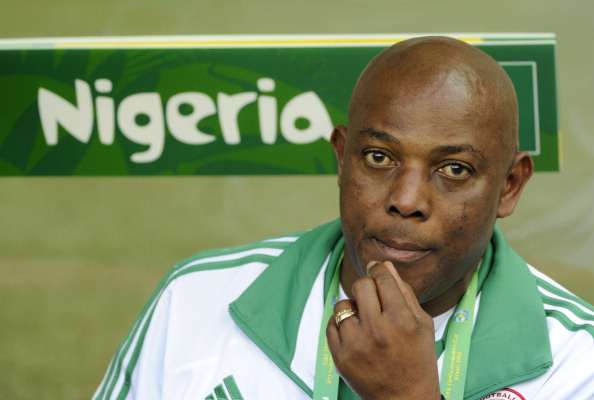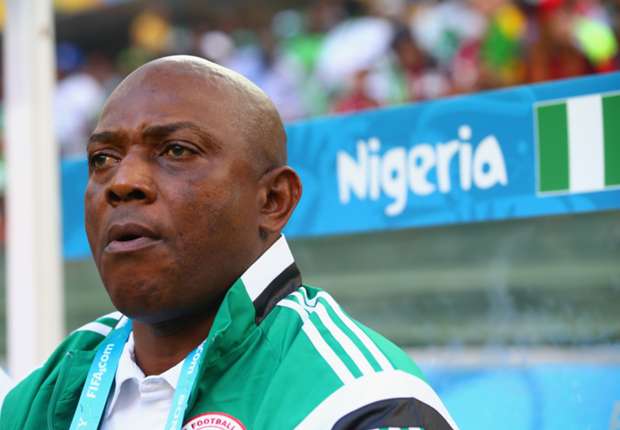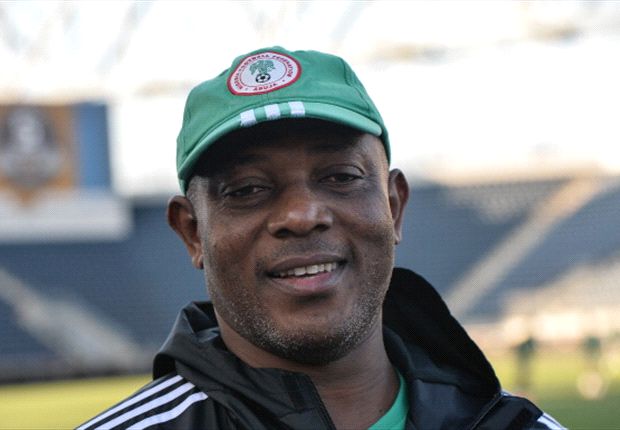
Would the Super Eagles be best placed moving away from the reign of the Big Boss and following a new direction?
DEBATE
By Okeowo Destiny & Sam Prais
By Okeowo Destiny & Sam Prais
Stephen Keshi has left the Nigeria
hotseat, and while there is some scope for the Big Boss to renew his
contract with the Super Eagles, would this be the right move for both
parties?
In this feature, two of Sportmasta Nigeria's finest debate whether the time has come for the Super Ealges to begin to look towards a post-Keshi future, or whether the NFF should do all they can to keep the Big Boss on board.
In this feature, two of Sportmasta Nigeria's finest debate whether the time has come for the Super Ealges to begin to look towards a post-Keshi future, or whether the NFF should do all they can to keep the Big Boss on board.
| The Time has come for Someone New |
For the first time in a long time, the Super Eagles went to a World Cup with none of the rancour and angst that had characterised previous campaigns. There was no unjustifiable change of management as with the previous three participations in 1998, 2002 and 2010.
For the most part, the Big Boss was given leeway regarding personnel choices, a freedom not to be taken for granted considering the antecedents of the NFF. The players had the thorny issue of bonuses and allowances sorted beforehand, even though it proceeded to regenerate like a reptilian limb.
In short, there was really no excuse for failure (a relative term, granted). It cannot be said that the team failed, but at the same time, it cannot be said that Keshi got the best possible results given the resources available.
When the draw was made, it was clear to anyone with football knowledge that the Super Eagles were favourites to progress from the group behind Argentina. Arsenal manager Arsene Wenger tipped Nigeria to make it out of the group before a ball was kicked. It was a bare minimum.

Too many odd decisions have undermined confidence in Keshi...
It was achieved, but the team sure made heavy weather of it. A dire draw against Iran proved that the indifferent results of the pre-tournament friendlies had been a storm warning. The team lacked ideas, in spite of the fact Keshi has maintained a pretty closed group since the Cup of Nations win of 2013.
The win over Bosnia-Herzegovina seemed to paper over the cracks of a dysfunctional midfield: Ogenyi Onazi toiled alone, and Edin Dzeko had a goal contentiously ruled out for offside. The professionalism of the Bosnian Dragons ensured the Super Eagles progressed in spite of a loss to Argentina.
All the while, in addition to a worrying lack of structure to the team, it was clear the side was hamstrung by a very curious squad selection. The injury to Elderson Echiejile pre-tournament meant an untested Juwon Oshaniwa started the tournament with no outright backup; a hand fracture meant the absence for the Second Round loss to France of Babatunde Michael, another prior unknown, who assumed an inordinate level of importance.
For failing to address the squad’s glaring weaknesses; for selecting a team unfit for the profile of football premier showpiece (see Keshi’s shocking revelation that Reuben Gabriel had been unfit); for lacking the nerve to drop an underperforming John Obi Mikel; and for failing to contrive a clear and cohesive style of play, Nigeria must look to move on from the Big Boss.
Follow destinyokeowo on
| "Who could possibly replace him?" |
Therefore, should the man who brought back a good measure of pride and stability in the national team be allowed to leave?
The man who won the Africa Cup of Nations within two years of taking charge (ending a 19-year search for silverware), qualified and led the team to the World Cup where they reached the round of 16 for the first time in 16 years.
The idea of a new face is appealing but it has become quite difficult to easily imagine a successful future for the Super Eagles without Stephen Keshi.
Since the highly-exalted 1989-1994 reign of Clemens Westerhof and his iconic squad, have Nigeria experienced such progressive fortunes under any other manager?
After the Dutchman bowed-out, the Eagles moved from hand to hand, swiftly and sadly, like the rejected legal tender in a busy market square; from the grasp of ‘old school’ tacticians-cum-disciplinarians, Shaibu Amodu (who had four different frustratingly unlucky spells), Festus Onigbinde and Christian Chukwu, to the autocratic dispensations of Samson Siasia and Augustin Eguavoen.

Big Boss...Big Shoes to fill
It wasn’t just the locals who failed to bring back the ‘glory days’. Jo Bonfrere, Philippe Troussier, Bora Milutinovic, Berti Vogts and Lars Lagerback were all supposedly ‘high-profile’ coaches from across the ocean who took a swing at the job with little or nothing to show for their handsome paychecks.
The Super Eagles of Nigeria hotseat is not a position for baby coaches. In the same vein, it is not a position for mediocre veterans.
Within the local scene, some names with the potential of succeeding the Big Boss have been thrown around, however, it’s not quite as simple as tossing a coin into a jukebox.
Expectedly, some have settled in their minds that a foreign coach is the way forward, citing tactical efficiency and impartiality as the basis for their argument. I don’t quite follow such sentiments. Tactical acumen can be acquired. Impartiality is a matter of being equitable. There are few men in Nigeria who can shoulder the responsibility of both.
As far as the future of the sport is concerned, the next move for Nigeria is crucial. The question should not be whether Keshi should stay, it should be “who could possibly replace him?”
No comments:
Post a Comment